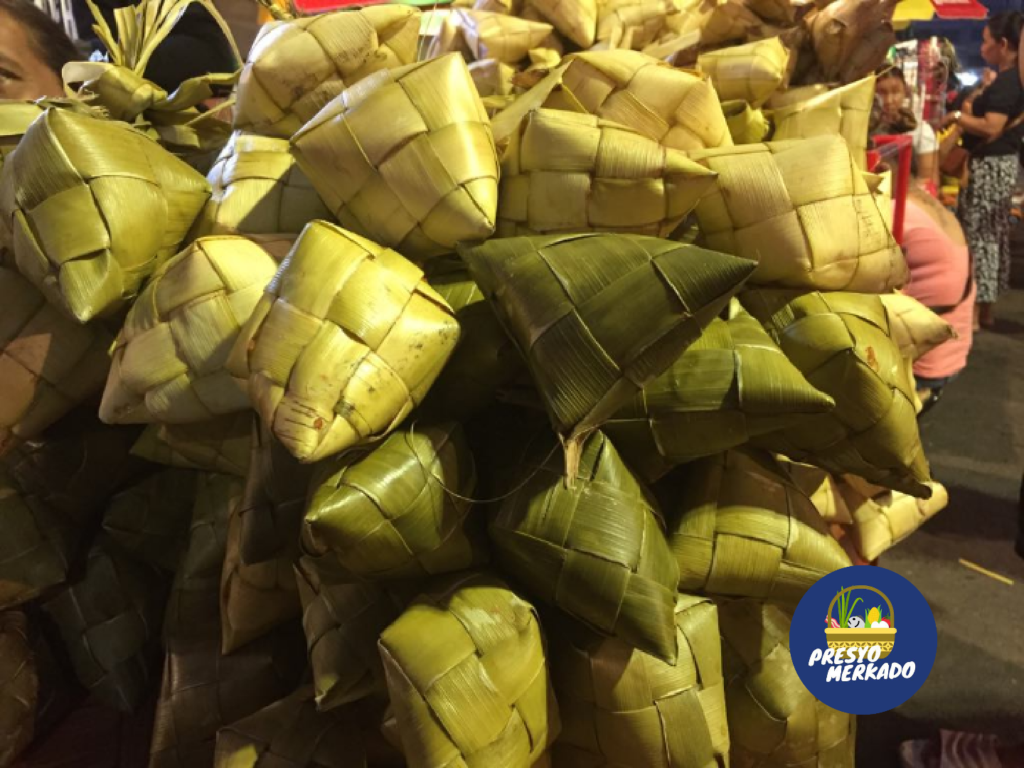The historical and religious significance of pusô

Hanging rice is sold for P6 per piece for the large ones and P3 per piece for the smaller ones at the Tabo sa Banay along F. Gonzales Street in Cebu City. CDN Digital photo | Delta Letigio
Cebu City, Philippines—Most of us know of hanging rice being a regular item during outings such as trips to the beach.
It goes well with local favorites like Cebu lechon, barbecue, grilled pork, grilled fish or even fried pork intestines.
But did you know that hanging rice, locally called “pusô,” also represents a historical and religious significance for Cebuanos.
The pusô, which is basically rice cooked in a triangular pouch made of woven coconut leaves, was used by pre-hispanic Filipinos as offerings to the “diwatas” during religious festivals and activities.
The process of weaving diamond shaped pouches was a skill important for women in pre-Hispanic Cebu as women competed with variations in their weaving patterns and designs.
Before the dawn of Christianity, pusô was often offered to deceased members of the family, so they will not haunt the living. It was also used to thank the gods for a good harvest.
Today, pusô is seen everywhere from the street food carts to the barbecue stalls. It has become a staple food for Cebuanos.
A place one can find hanging rice is at the Tabo sa Banay along F. Gonzales Street in Cebu City.
It is sold for P6 per piece for the large ones and P3 per piece for the smaller ones. /bmjo
Disclaimer: The comments uploaded on this site do not necessarily represent or reflect the views of management and owner of Cebudailynews. We reserve the right to exclude comments that we deem to be inconsistent with our editorial standards.
